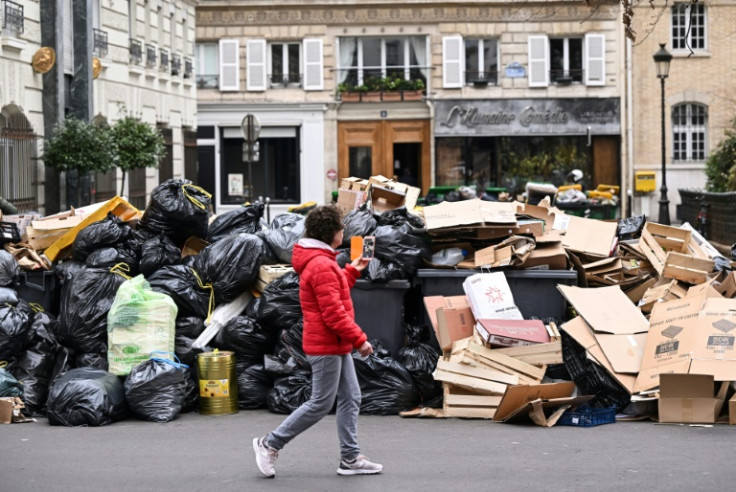Tower Hamlets Covered In 6ft Piles Of Rubbish Due To Strike
The East End has become swamped with bin bags after Unite union workers increased their strike for better pay to conquer the current cost-of-living crisis.

Piles of bin bags have been left on the streets of the East End after members of the Unite union workers group declared a month-long strike.
The workers are employed by Tower Hamlets Council and began their strike action on Monday 18 September – after the group refused the flat rate increase of £1,925.
According to a statement published by Unite, the pay offer was "below the rate of inflation and amounts to real terms pay cut".
Before the strike dates were increased, the statement made it apparent that: "The workers will initially take strike action from Monday 18 September until Sunday 1 October."
Unite general secretary Sharon Graham said: "Our members provide critical frontline council services.
"Despite the essential roles our members undertake their employer thinks it is acceptable to propose what amounts to yet another real-terms pay cut, at a time when they increasingly can't make ends meet."
The lengthy strike symbolises their consistent call on the government and council for better pay.
It is only the second week of the month-long strike, and already the streets in the London Borough of Tower Hamlets have seen piles of rubbish that measure up to six feet tall.
Residents of the area have urged the Tower Hamlets Council to come to a deal with the workers due to the large numbers of rotting food products and discarded nappies increasing each day.
Politicians and tourists have also called on the council to settle the dispute over pay.
In response to the refusal of more than 200 workers, Tower Hamlets Council said it was "disappointed" by the strike.
The Unite union revealed that the group of strikers included rubbish collection and street cleaning workers.
The rubbish is piling up on Brick Lane and the waste collectors' strike runs until 1st October. It's the seventies all over again! pic.twitter.com/aiFelalhdx
— Spitalfields Life (@thegentleauthor) September 25, 2023
The current cost-of-living crisis in the UK has meant that 48 per cent of workers have struggled to afford heating, electricity and water bills. A survey amongst Unite workers also found that a further 30 per cent of people are struggling to afford food and clothing.
The same survey, which highlights how "years of pay freezes and below inflation pay deals has resulted in workers facing desperate financial choices", also discovered that almost a quarter of workers have been skipping meals to save money and 17 per cent have struggled to meet rent or mortgage payments.
Harry Low, BBC London reporter in Brick Lane, revealed: "The stench is the first thing that hits you. A stomach-turning stink which is enough to leave people pinching their noses."
"There is leftover curry, rotting eggshells and food containers everywhere as the wind spreads waste all across this usually vibrant part of east London," he added.
The owners of restaurants and cafes that are located in the famous Brick Lane region have reportedly paid hundreds to private rubbish collectors.
Ellis Zelum, the Manager of the Beigel Shop on Brick Lane, told reporters that the business is spending an extra £400 a week on daily private collections.
The staff also recalled that they "had to dump a load yesterday because our yard was full of it and we don't want to attract mice or rats", which cost the business another £150.
The smell of the rotting waste has also lost the Beigel Shop customers and has created a bad impression for tourists visiting the area.
"It's been pretty bad especially with customers coming past, the smell of rubbish, they don't want to eat," Zelum declared.
Ignoring the public complaints, Nick West, Unite's Regional Officer, told Tower Hamlets Council that if they were to agree to a larger pay increase, services would "get back to normal" from tomorrow (Wednesday 27th September).
© Copyright IBTimes 2025. All rights reserved.




















